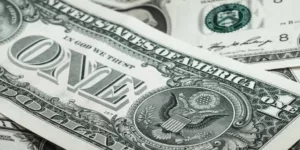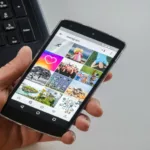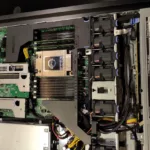Banking has been around from ancient times, with Babylonian merchants first giving grain loans to local farmers. Over the years, this has progressed from the first proper banks being set up in 14th-century Italy to the big multinationals that we know today. One key factor within both personal finance and the banking sector is the currency used.
Whether you spend US dollars, euros or British pounds, the currency that you have to use is central to modern life. In the past, this was pretty simple in terms of it being paper cash or checks that you would buy goods with or put into your bank account. In recent times though, technology has completely revolutionized how we deal with currency and spend it.
Online banking and debit cards led the way
While a lot of the technological breakthroughs with currency are pretty recent, there are two things that led the charge – online banking and debit cards. Both utilized the technology around at the time and subsequent updates to change how we access our funds and how we use them.
Online banking was first introduced in the US in the early 1980s by banks in New York, such as Citibank. Since then, it has grown around the globe to enable bank account holders to access their currency via the internet. You can now not only manage your finances online but also make payments.
Debit cards actually first came up as an idea in 1966, but it was the 1980s and onwards that really saw them become commonplace globally. The idea that you could pay for goods with a little piece of plastic linked via technology to your bank account was quite something at the time. Since then, it has gone on to be one of the most popular ways that we deal with our personal currency and means that you no longer need a pocket full of paper money to buy goods.
What other ways has technology affected currency?
The big technological leap that has changed our currency dealings is the internet. The development of online tech and the services around it has opened up many new ways to interact with your money.
Here are a few of the most exciting and amazing ways:
- Transferring money overseas – before online payments were possible, sending money abroad involved either stuffing it into an envelope or taking it personally. Obviously, neither method was ideal! Online technology and the connection of the whole world thanks to wireless routes changed this. Now, you can transfer money over the internet to anywhere on the planet from your home computer. Just be sure to get the best international transfer rates when you do so that more of the money you send gets there!
- Mobile payments – this is one quite recent way that technology has changed our currency dealings. Popular mobile payment services have millions of users now – indeed, Apple Pay is thought to have around 12 million users, according to recent reports! These services mean that you can use the latest smartphone technology and internet connections to pay for goods in person with your mobile phone.
- Online e-payment solutions – shopping online is a massive sector but is only possible because of the technology that allows you to pay online for the goods you buy. Many will use huge e-payment solutions such as PayPal to do this, which allow you to put money into them from your bank account to make quick digital payments. These e-payment solutions are also very handy for sending money to friends or receiving business payments for goods sold.
- Contactless card payments – debit cards always required you to enter a special PIN number when using them to pay. This has changed though in recent years as contactless payments have become a reality. This sees contactless debit cards use the technology contained inside them to automatically make payments when held over the payment machine.
Cryptocurrency – the future of currency?
What is the next step for currency and how we deal with it? As you can see from the above, it will almost certainly be something digital, as that is how we mainly use our money now. With this in mind, cryptocurrency seems the most likely development. It has already been around for a while, with big currencies such as Bitcoin making global news. Many think that this totally digital currency will become not only how we are paid for work in the future but also how we buy things.
Is paper currency dead?
Does this mean that paper cash is dead? While that is probably a bit too dramatic, the recent advances in technology and changes in consumer spending habits do mean that it may be used less and less. After all, who needs to carry a wallet full of paper money when you can simply pay via your mobile phone or debit card?








